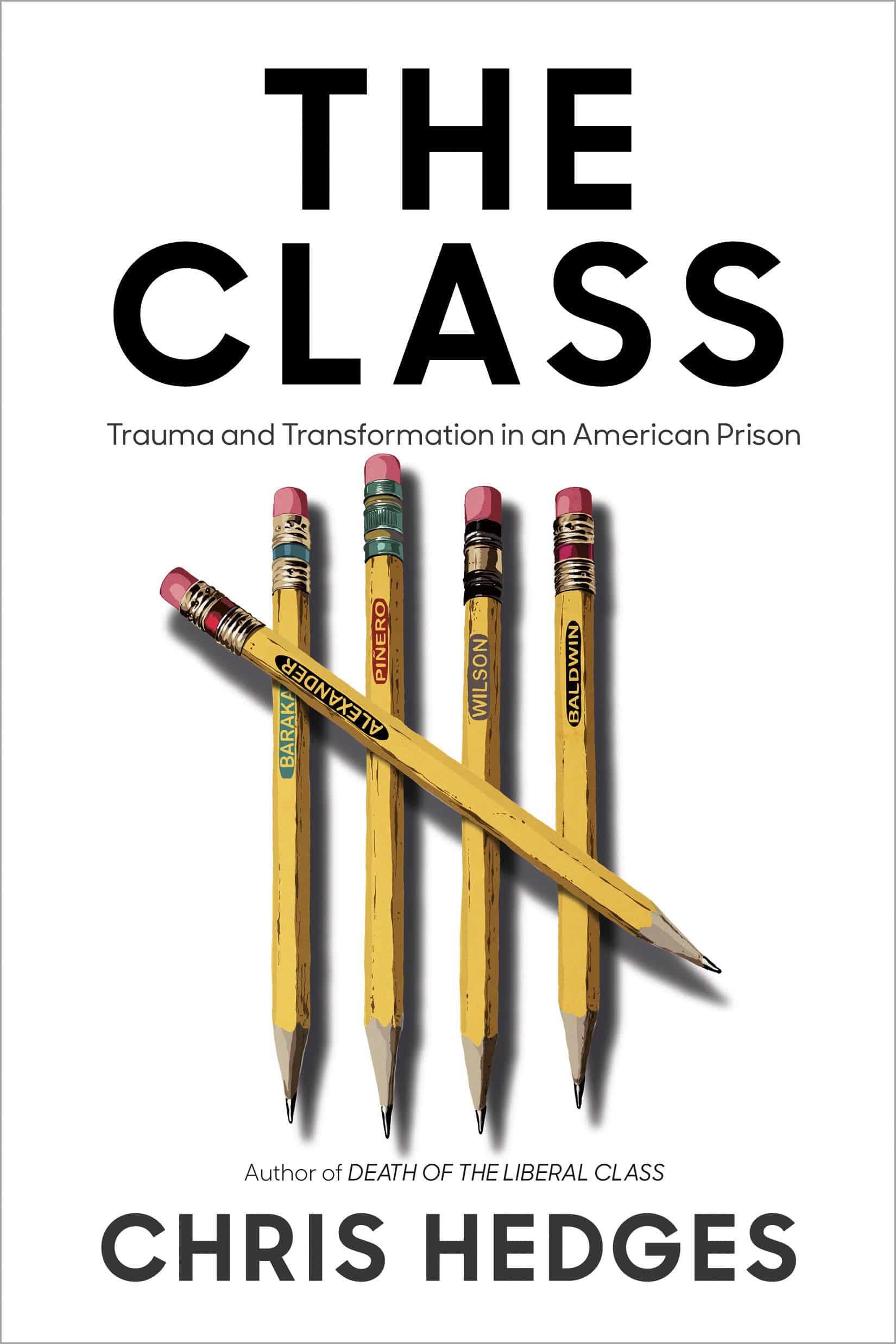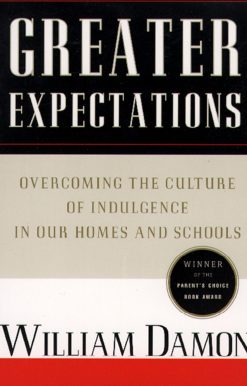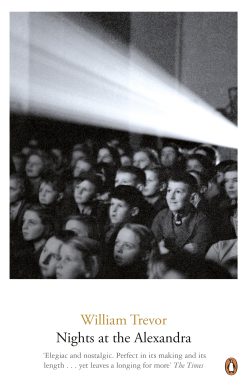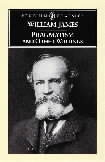The Class: Trauma and Transformation in an American Prison
24.00 JOD
Please allow 2 – 5 weeks for delivery of this item
Add to Gift RegistryDescription
“This book could change everything. It could change our minds. It could buttress our hearts. It could make graspable why today’s prisons are contemporary slave plantations. I couldn’t put it down and I tried.” —Alice Walker, author of The Color PurpleA haunting and powerfully moving book that gives voice to the poorest among us and lays bare the cruelty of a penal system that too often defines their lives.In this unforgettable work, Pulitzer Prize-winning journalist Chris Hedges, who brought us War Is a Force That Gives Us Meaning and America, The Farewell Tour, provides an intimate and moving look at the lives of the students he teaches in a maximum-security prison. He and twenty-eight students (who together are serving a combined sentence of 515 years) read and discussed plays by Amiri Baraka, John Herbert, Tarell Alvin McCraney, Miguel Piñero and August Wilson, among others. Together they set out to write an original play drawing on their experiences of poverty, institutionalized racism, police brutality and mass incarceration. (Their play, Caged, would eventually perform to sold-out audiences and be published as a book in 2020.) In The Class, the men—some of whom know they will die in prison—give voice to the struggles of grief, shame, injustice, guilt and generational trauma they and their families have endured, as well as to their hopes and dreams. Hedges chronicles with heart-breaking intimacy the emotional struggle for artistic expression that leads to self-awareness, transformation and redemption. The Class is at once a story of creative triumph and a scorching critique of the racialized poverty that plagues North America and what it does to the most vulnerable.
Additional information
| Weight | 0.39 kg |
|---|---|
| Dimensions | 2.6 × 14.61 × 21.65 cm |
| PubliCanadation City/Country | Canada |
| by | |
| format | |
| Language | |
| Pages | 272 |
| publisher | |
| Year Published | 2021-10-19 |
| Imprint | |
| ISBN 10 | 0735281106 |
| About The Author | CHRIS HEDGES spent nearly two decades reporting in Central America, the Middle East, Africa and the Balkans. After fifteen years at the New York Times, he now writes a weekly column for the online magazine Truthdig. His bestselling books include America, the Farewell Tour, Empire of Illusion, Death of the Liberal Class and his classic War is a Force that Gives Us Meaning. He is married to the Canadian actor Eunice Wong. They live in Princeton. |
ADVANCE PRAISE FOR THE CLASS“Combining searing, well-informed critiques of the U.S. criminal justice system with sympathetic character profiles and inspirational accounts of intellectual and emotional breakthroughs, this is a powerful look at how creative expression can provide ‘a taste of freedom.’” —Publishers Weekly “An affecting book in which every page urges more humane treatment of prisoners.” —Kirkus Reviews"Hedges calls on us to question our view of incarcerated people and our understanding of education’s purpose." —Booklist"Chris Hedges is the greatest radical writer and journalist of our generation! His courage and consistency are legendary! I shall never forget our teaching together at Rahway prison or our meetings with the greats Mumia Abu-Jamal and James Cone at Mahanoy prison. This magnificent book confirms his grand stature!" —Cornel West, author of Race Matters "This book could change everything. It could change our minds. It could buttress our hearts. It could make graspable why today’s prisons are contemporary slave plantations. I couldn’t put it down and I tried." —Alice Walker, author of The Color Purple "Chris Hedges opens the door for the long-buried talents of the incarcerated. In turn, they open the door to a new and valuable perspective for us all." —Tom Fontana, Emmy Award-winning creator of "Oz"PRAISE FOR CHRIS HEDGES' AMERICA, THE FAREWELL TOUR“[E]loquent, detailed and devastating.” —James McEnteer, Dissident Voice“Chris Hedges is perhaps today’s most important public intellectual, and America, The Farewell Tour is perhaps his most important book. If we as a society are able to move past our current ‘sickness unto death,’ as Kierkegaard put it, it will be in great measure thanks to books like this one.” —Derrick Jensen, author of The Culture of Make Believe“[U]nexpectedly moving, not simply because [Hedges] is most likely correct about how the final act will play out, but also because in the face of such unrelenting darkness, he is still trying to shed some light.” —Dorothy Woodend, The Tyee“Chris Hedges, the realist and no-holds-barred award winning journalist and war correspondent gives us the full antidote to Trump’s and other politicians’ fantasies and sugarcoating of what Americans are experiencing in this inverted home of the free. Hedges walks you through the reality of this ‘other America’ [and] blows away the insidious incense of the pontificating plutocrats and their toady oligarchs.” —Ralph Nader, Common Dreams“Chris Hedges is one of a kind—a lone, furious voice crying in the wilderness of our national and global collapse. . . . An equal opportunity iconoclast with a voluminous knowledge of political theory, geo-global politics and traditional Western liberalism, Hedges relentlessly digs beneath the outcroppings of our moral and social decay, and his latest book is a corker: A searing analysis of the consequences of a decade-long assault on civic society by the neoliberal forces of late-stage capitalism. No mere abstractionist, Hedges—a war reporter who has witnessed empire collapse first-hand—travels to ground zero of America’s decay and disenfranchisement, taking an intimate look at US communities ravaged by poverty, addiction, unemployment and pervasive hatred. This book pulls no punches. It’s a hard but necessary read, and we dare not avert our eyes from Hedges’s prognosis.” —Rick Levin, Eugene Weekly |
|
| Excerpt From Book | I taught my first prison class in 2010 at Wagner Correctional, which houses men in their teens and early twenties. The course was American history, and I used Howard Zinn’s A People’s History of the United States as my textbook. Wagner, built in the 1930s, had the look and feel of prisons in old black-and-white gangster films. My class met in a small basement room. To get there, I had to pass through a series of descending locked gates. I walked through an open gate that would then close behind me. I would wait fifteen seconds in a holding cell before the next gate opened. I repeated this process several times as I went deeper and deeper into the bowels of the prison. It felt as if I were traveling downward through Dante’s circles of hell: limbo, lust, gluttony, greed, anger, heresy, violence, and fraud, and then to the final circle of hell—treachery, where everyone lives frozen in an ice-filled lake. Lasciate ogni speranza, voi ch’entrate. Abandon all hope, ye who enter. We studied Spain’s violent decimation of the native inhabitants in the Caribbean and the Americas, the Revolutionary War in the United States, and the genocide of Native Americans. We examined slavery, the Mexican-American War, the Civil War, the occupations of Cuba and the Philippines, President Franklin D. Roosevelt’s New Deal, two world wars, and the legacy of racism, capitalist exploitation, and imperialism that continue to infect American society. We looked at these issues, as Zinn did, through the eyes of Native Americans, immigrants, those who were enslaved, feminists, union leaders, persecuted socialists, anarchists, Communists, abolitionists, antiwar activists, civil rights leaders, and the poor. As I read out loud passages by Sojourner Truth, Chief Joseph, Henry David Thoreau, Frederick Douglass, W. E. B. DuBois, Randolph Bourne, Malcolm X, or Martin Luther King, I would hear students mutter “Damn!” or “We been lied to!” Zinn’s work, because it gave primacy to their story rather than to the story of powerful and wealthy white men, captivated them. Zinn elucidated the racial and class structures that, from the inception of the country to the present, perpetuate misery for the poor, and gluttony and privilege for the elite—especially the white elite. A veil was lifted. My students took notes furiously as I plowed through the book in ninety-minute lectures.Education is not only about knowledge. It is about inspiration. It is about passion. It is about the belief that what we do in life matters. It is about moral choice. It is about taking nothing for granted. It is about challenging assumptions and suppositions. It is about truth and justice. It is about learning how to think. It is about, as Baldwin writes in his essay The Creative Process, the ability to drive “to the heart of every matter and expose the question the answer hides.” And, as Baldwin notes further, it is about making the world “a more human dwelling place.”Wagner, because it was a youth correctional facility, and the prisoners were young and could be undisciplined, required the imposition of strict rules for classroom behavior. Disagreements could quickly become personal. Homophobia, common in male prisons, generated slurs to belittle others. There were always one or two students that tried to veer the class discussions into tangents, especially since they knew I had lived outside the United States, had covered wars and conflicts, and had been to countries they had only glimpsed on television. In one class, I struggled to redirect the class back to the course material from its insistent questions about the possibility of nuclear war. When I asked why this issue was of such concern to them, a student answered, “Because if there is a nuclear war, the guards will run away and leave us in our cells.”I was unforgiving with those who did not take the class seriously. A student who disrupted the class to mouth off or play the clown, who had little interest in doing the work, sabotaged the chance my students had to learn. An uninterested or unruly student would arrive the next week and find I had crossed his name off the list. My reputation for zero tolerance spread quickly throughout the prison, along with my propensity to be a tough grader. It built a protective wall around my classes for those who had a thirst for education. —The corrections officer rapped on the Plexiglas that first night in Rahway. The three other professors and I were buzzed through the first heavy metal door and into the prison. There were 140 students who had been selected after a rigorous application process from the prison’s population of 1,500 to participate in the program known as the New Jersey Scholarship and Transformative Education in Prisons, or NJ-STEP, which allowed them to pursue their college degree. I had twenty-eight of these students in my class. We walked down a long, drab corridor until we passed through a cavity where a heavy, blue metal door had been electronically opened. I put my shoes, watch, pens, and belt in a plastic bin that rolled through an X-ray machine to an officer at a high wooden desk. I stepped through a metal detector. I lifted my arms to be patted down. The metal door behind us rumbled shut, and an identical door on the other side of the small room rumbled open. I walked into the rotunda. A half circle of metal bars with a gate in the middle separated us from the prison population. The white, throne-like BOSS chair—BOSS stands for Body Orifice Security Scanner, which is used to X-ray the cavities of prisoners for contraband—was on my left. A holding cell with bars on all sides was to my right. We waited silently. I watched prisoners in khaki uniforms, many carrying meal trays, walk in single file on the other side of the bars. When the corridors were clear, the officer seated by the gate motioned us forward. I went through the gate, passed perhaps a dozen officers, many wearing latex gloves, and another metal detector. On my left, some prisoners, dressed in white to identify them as kitchen workers, were seated on benches behind another set of bars. As civilians, we were not allowed into the corridors during movement, when long lines of prisoners would be walking to and from their cells. I walked up a flight of metal stairs into an area called the Old School. I registered with the officer at the desk. He checked the list.“Your classroom is at the end of the corridor on the left,” he said.I entered the room. My twenty-eight students were seated at desks. Many, given their size, barely fit. I was wearing an old brown suit. When I had gone to Brooks Brothers to see if I could replace it, the sales clerk informed me that it was no longer manufactured because it was not “a power color.” Power colors were probably something Brooks Brothers understood. The clothing firm got its start buying inexpensive cotton from slave plantations to make livery and cheap, coarse fabrics called “Negro cloth,” that it sold to slaveholders.My eyes were immediately drawn to the massive size of one of my students in the back row. He was, I would learn later, six foot two and 270 pounds. He had very broad shoulders, a dark, wide, open face, and short dreadlocks. He was Robert Luma, known as Kabir, which in Arabic means big. There were other large men in the room—members of what was referred to as the 400 Club, meaning they bench-pressed more than 400 pounds in the prison yard—but they appeared dwarfed next to Kabir.Kabir was a devoted listener of the Pacifica Network radio station that broadcast from New York City, WBAI. He had heard me on the air several times and told the other students they should take the class. Boris Franklin, dark skinned, with a round, inquisitive face and biceps that rivaled his thighs in size, was seated next to Kabir. Reading glasses were carefully tucked in the front pocket of his prison uniform. I assumed, correctly, that he was a serious reader and a serious student. He eyed me, however, like much of the class, with skepticism.“You walked into the room,” he told me later. “I thought, ‘This little dude is the guy Kabir says is supposed to be so great. Okay. We’ll see.’” I opened the class with my usual imposition of guidelines I had found necessary in the classes I had taught to younger students at Wagner. “My name is Chris Hedges,” I said. “I was a reporter overseas for twenty years, covering conflicts in Central America, the Middle East, Africa, and the war in the former Yugoslavia. Now I write books—a career choice made for me by my former employer, the New York Times, after the paper issued me a formal reprimand for speaking at public forums and on media outlets denouncing George W. Bush’s call to invade Iraq. They demanded I cease speaking publicly about the war. I refused. That ended my career at the paper. I was an English major at Colgate University. I have a master of divinity from Harvard. I also spent a year at Harvard studying classics. “I have taught in colleges before, including at Princeton University. I expect the same decorum and commitment to do the work here that I would in a Princeton classroom. In this class, we will read various plays, along with Michelle Alexander’s book The New Jim Crow. But first a few rules: In this class, everyone is treated with respect no matter what their race, ethnicity, religion, politics, or sexual orientation. In this class, we do not interrupt. We challenge ideas, but never integrity or character. I know homophobia runs rampant in men’s prisons. But not in my classroom. In my classroom, everyone has a legitimate right to be who they are created to be. In short, I never want to hear any derogatory term used about anyone, and that includes the word faggot. Is this clear?” The class nodded its assent. East Jersey State Prison was different from Wagner, which did not hold many long-term offenders. My new students were older. They were charged with more serious crimes—often murder. They had usually spent the first few years, even decades, of their time in New Jersey State Prison, the supermax prison in Trenton, where movement is heavily restricted and the prison regime harsh and unforgiving. They rarely went to the prison yard in Trenton, and there were no weights—prisoners call it the pile—which are usually a ubiquitous part of prison life. Those prisoners considered incorrigible by the Department of Corrections are housed in Trenton, often for life.The atmosphere in Trenton was dark and menacing. The Department of Corrections did not permit college credit courses in Trenton because, as one corrections official said, “They will die in there anyway.” I taught noncredit courses there. One summer I taught Shakespeare’s King Lear. When we discussed Gloucester’s aborted suicide, a third of the class admitted they had seriously contemplated or attempted suicide in the prison. My students carried the trauma of Trenton into East Jersey State Prison. In short, the students were adult men, more reserved, more composed, but also hardened in the way the young, often preening men in Wagner were not.Students got into the college program at East Jersey State Prison by keeping their disciplinary records clean. I would often hear that prisoners “age out of crime,” and that is probably the best way to describe my students. They held back emotionally. They watched me carefully. They trusted few people and only after long observation. They had clearly demarcated lines that you crossed at your peril. But they did not have the impulsiveness and immaturity of younger prisoners.I had more experience with prisons than most of my fellow professors. I had been inside numerous prisons in Latin America, the Middle East, India, and the Balkans as a foreign correspondent and had been locked up for brief periods in cells myself—including in Iran, where I managed to get through 180 pages of Fyodor Dostoyevsky’s The Idiot before being released. I was also, as a war correspondent, accustomed to being around violence and those who perpetrated violence.In my class in East Jersey State Prison, we would have a long discussion that semester about prisoners who murder other prisoners. “Don’t they take into consideration that they will almost certainly get caught and add a life bid to their sentence?” I asked. The class assured me that the high cost of the murder was known and accepted by the assailant. It was part of the price to pay for a killing that was often seen as an act of justifiable revenge, they insisted. As the students filed out that night, one of them came up to me and whispered, “Everything you heard is bullshit. I shanked a dude in Wagner. I didn’t think about any of that. All I wanted was to take the motherfucker out.” The next week, a student said he had watched my face as his classmate confessed to a killing and was surprised by my composure. “Well,” I said laughing, “in the world I come from, the killers in here are amateurs.” “The most powerful prisoners are not the gangsters,” Boris Franklin wrote later. “They are those who have earned the respect of the other prisoners and the guards. There is less violence in a well-run prison than many on the outside assume, since it is the word and stature of these prison leaders that creates social cohesion. These leaders ward off conflicts between prisoners, raise issues of concern with the administrators, and intercede with the guards. They intuitively understand how to navigate the narrow parameters set by prison authorities, giving them something that resembles freedom. Prison is a lot like the outside world. There is a stratum of people you try to avoid. There are the majority who spend most of their free time slack-jawed in front of a television set, and then there are those who have recovered their integrity and even, to an extent, their moral autonomy. They have risen above prison to become better people. Yet even they can be arbitrarily disappeared into solitary confinement or shipped to another prison by the administration. Everyone in prison is disposable."It was this last group . . . that Professor Chris Hedges met when he walked into a prison classroom in Rahway, New Jersey, in September 2013,” he continued. “These were some of the 140 men who comprised what we called Rahway University; those of us who dedicated all our free time to studying to earn our college degree. We would be in the yard working the pile talking about Plato or Augustine. We exchanged ideas about the readings from our bunks or in the mess hall. And we tutored those who were falling behind. We had converted our cells into libraries. Our books were our most precious possessions, especially since we had to scrape together the money to buy them. We did not lend them unless we were sure they would be read and even surer they would be returned. And if you read one of our books, you had better be prepared to give an intelligent commentary on its contents. We were a dedicated fraternity of prison scholars."My class contained highly literate men. None of this was apparent from looking at most of them, but their passions and mine were identical. I was not, I would soon find out, the only writer in the room. |
Only logged in customers who have purchased this product may leave a review.






Reviews
There are no reviews yet.